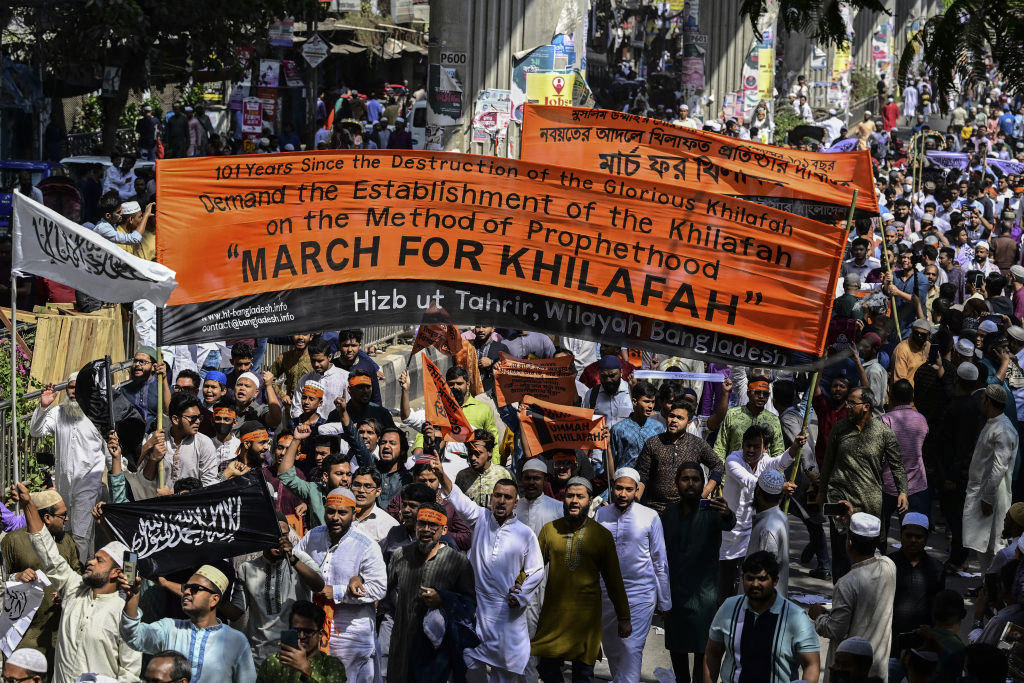How Bangladeshi Workers are Powering Global Jihad
by Salah Uddin Shoaib Choudhury • July 25, 2025 at 5:00 am
Since the 2024 jihadist-backed political shift in Bangladesh, the nation has become fertile ground for Islamic extremism. Extremist groups now see an opportunity to dismantle secular governance and establish an Islamic theocracy under interim head of government Muhammad Yunus. Both ISIS and Al-Qaeda are exploiting this instability to expand their regional footprint.
The interim government, led by Yunus, faces multiple crises, including extremist violence, growing sectarian tensions, and rising threats to religious minorities, according to the Jamestown Foundation. Indian strategist Professor Brahma Chellaney described the situation as an "upsurge of radical Islamism" in Bangladesh, exacerbated by systematic attacks on minorities and the empowerment of previously imprisoned jihadists.
Compounding these issues, jihadist leaders from Hamas and the Taliban have made high-profile visits to Bangladesh, receiving open support from Islamist groups.

A shocking revelation has emerged implicating Bangladeshi expatriate workers in the covert collection of funds for Islamic State (ISIS), Al Qaeda, and other terrorist outfits.
This development raises urgent concerns across countries with large Bangladeshi migrant populations, including Malaysia, Saudi Arabia, the United Arab Emirates, the United States, and nations in the European Union. Even more alarmingly, many of these workers are not ethnic Bangladeshis, but Rohingyas and "stranded Pakistanis" (Biharis) who obtained Bangladeshi passports through illegal channels.
Recent investigative reports published in The Star of Malaysia, The Straits Times of Singapore, and leading Bangladeshi media confirm that the Royal Malaysian Police, through their Special Branch Counter Terrorism Division (E8), uncovered a group named Gerakan Militan Radical Bangladesh (GMRB). The group was actively raising funds to support ISIS cells in both Syria and Bangladesh.

